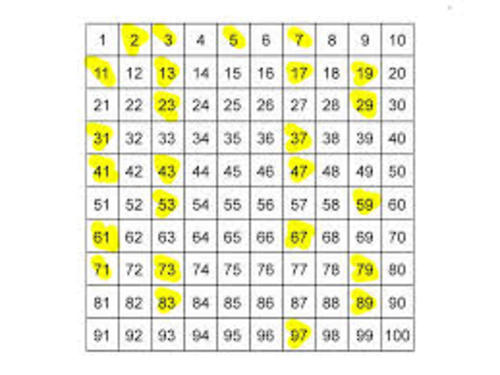Almost 2007!
 Find the number of trailing zeroes in the product of the first 2007 (positive) prime numbers.
Find the number of trailing zeroes in the product of the first 2007 (positive) prime numbers.
The answer is 1.
This section requires Javascript.
You are seeing this because something didn't load right. We suggest you, (a) try
refreshing the page, (b) enabling javascript if it is disabled on your browser and,
finally, (c)
loading the
non-javascript version of this page
. We're sorry about the hassle.
7 solutions
to give end digits as zeros product should be done between the numbers containing as end digits As(2 &4),(4&5) ,(6 &5), (8,5),(0 & any num) but no prime num is end digit with 4,6,8,0. Therefore the prime num multiplication which produce ended zero is b/w ( 2 &5 only).
yeah..I did the same...damn easy !!
yes that is write no more multiples of five or two's that is why it should only have one zero or the lowest prime numbers taht is even or multiples of two is two itself
multiple of 2 and 5 is 10
Since the product of prime numbers; 2 & 5 is 10 and there is no primes which give rise zeroes greater than 1 zeroes.
Therefore the number of trailing zeroes in the product of 1st 2007 prime numbers is 1
To have a trailing zero, we need a '10' and to have a 10 we need a 2 & 5. Since we are considering the product of prime nos only, 2 and 5 will occur in the product only once..... so only 1 trailing zero :-)
There exists only one Zero since only one even prime number... :p
Only product of 2 and 5 yields a prime number all other prime product not ends with a zero :-)
A Multiplication of two Number, result ended with Zero if the unit place of Numbers have (0, 2, 4, 5, 6, 8) But any one of these Numbers at unit place of two digit or more then two, Number then it will not be prime. so, these six number contains four (0, 4, 6, 8) are even and remaining two (2, 5) are prime Number. The multiplication of these two 2 and 5 results a single Zero.
I missed the word "prime" so I interpreted it as the number of trailing zeroes in 2007 factorial. The answer to that problem is kinda neat; try it.
https://brilliant.org/community-problem/again-2007/?group=Yu37znGmjpiB&just_created=true Do try this, this is the problem to which you perhaps answered.
For a number to end with zero, it must be a multiple of both 2 and 5. If we closely look at the list of prime numbers, 2 and 5 will occur only once and their multiples will not. Since there is only one 2*5 pair, there will be one one zero. Answer is therefore 1.